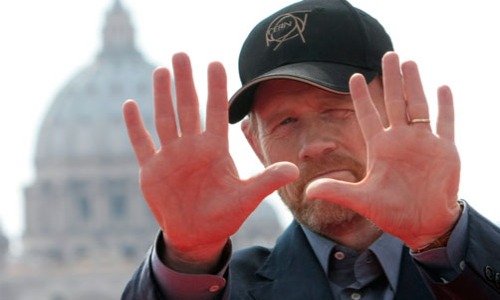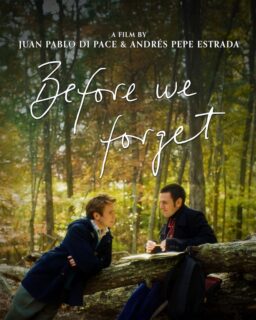For tax day, the editors at MSN Movies came up with an idea for contributors to write short essays about the most, ahem, “taxing” people in modern movies. Each of us picked a person whose presence, behind or in front of the camera, we find wearisome and debilitating — as in the Merriam-Webster Dictionary definition of taxing: “onerous, wearing.”
You’ve probably already guessed my choice. I’ve written quite a bit about why I find Christopher Nolan‘s post-“Memento” work lackluster, but this exercise gave me an opportunity to condense my reservations about his writing and directing into one relatively concise piece:
Let me say up front that I don’t think Nolan is a bad or thoroughly incompetent director, just a successfully pedestrian one. His Comic-Con fan base makes extravagant claims for each new film — particularly since Nolan began producing his graphic-novel blockbusters with “Batman Begins” in 2005 — but the movies are hobbled by thesis-statement screenplays that strain for significance and an ungainly directing style that seems incapable of, and uninterested in, illustrating more than one thing at a time: “Look at this. Now look at this. Now look at this. Now here’s some dialogue to explain the movie’s fictional rules. Now a character will tell you what he represents and what his goals are.” And so on … You won’t experience the thrill of discovery while looking around in a Nolan frame. You’ll see the one thing he wants you to see, but everything around it is dead space. […]
Nolan’s sensibility is like that of a beginning language student who is still translating every word individually: One. Word. At. A. Time. This isn’t just a matter of directorial efficiency, though that’s part of it. It has to do with fluency in the medium, with making use of a cinematic vocabulary — composition, rhythm, flow — to create meaningful associations across space and time. Next to, say, David Fincher or the Coen brothers or Martin Scorsese or Steven Spielberg (all quite different stylists), Nolan resembles the author of those Dick and Jane books for young readers: “See Spot run. Run, Spot, run. Run, run, run.” Fine for first-graders, but a bit rudimentary for adults. […]
In “The Dark Knight,” characters announce the movie’s themes in the form of lectures to the audience while the movie is playing. “Inception” has no discernible themes because it consists of nothing but game rules, most of them arbitrary. Since the movie’s “dreams” aren’t dreams at all, and have little connection to the ways in which the human mind actually works, what we’re left with is an overblown, complicated (but not complex) version of 3-D tic-tac-toe. We’re constantly reminded of the regulations and restrictions the Game Master has put in place for operating on and between the levels… but so what? What does it all signify? I’d much rather watch a movie that’s actually about something.
Here’s the whole taxing line-up:
Don Kaye on Angelina Jolie
James Rocchi on Michael Bay
Dave McCoy on Christian Bale
Richard T. Jameson on Ron Howard
Glenn Whipp on Robert De Niro
Kat Murphy on Jennifer Aniston
Jim Emerson on Christopher Nolan
Glenn Kenny on Harrison Ford
Kim Morgan on Nancy Meyers
Mary Pols on Nicolas Cage
A few choice nuggets (and I’d say these criticisms of Ron Howard and Michael Bay apply to some extent to Nolan, as well):
“Apollo 13” (1995) may be the flattest movie I’ve ever seen; its epic tale is true-life, almost literally cosmic, yet the film’s utterly devoid of resonance. Frank Langella and Michael Sheen make “Frost/Nixon” (2008) worthwhile, but as with so much of Howard, it’s a movie you can watch a few seconds ahead of what’s on-screen: “He’ll say this … then, in two beats, a reaction shot of the other guy … held a nanosecond too long … until that guy says thus-and-so …” Two times out of three, thus-and-so will be exactly what that guy says. Really, such movies watch themselves. And clearly Ron Howard loves making that happen, and figures that’s his job.
— Richard T. Jameson
Bay once said, pre-emptively defending his honor, “I make movies for teenage boys. Oh, dear, what a crime.” But the crime isn’t the act, it’s the execution. James Cameron, Justin Lin, Steven Spielberg, Sam Raimi, Peter Jackson, Peter Berg and John Woo make movies for teenage boys, but they also make them exceptional movies — with character, with care, with craft, with substance under the spectacle and with a sense of personality, not just Bay’s endless series of quick cuts and soft-focus lighting and slapdash storytelling and cheap sentiment as a substitute for real emotion. With Michael Bay, what’s frustrating isn’t merely the films that are, but the films that you can imagine if only he’d quit being lazy, put in real work and prove that a good movie can make money, too. — James Rocchi
I don’t think Christian Bale is a terrible actor. He’s nowhere near as offensive as any of the brutal muggers that make up the “Sex and the City” four-headed monster. Nor is he is as soul-sucking as Adam Sandler, quintessential baby-talking frat guy (yeah, I saw “Punch-Drunk Love“). But this isn’t an essay about the worst actors or directors working today. It’s about the most taxing. And outside of Daniel Day-Lewis, I can’t think of an actor who exhausts me like Bale, who creates that prickly feeling on the back of my neck and makes many of my muscles contort in unnatural ways, and who — this is the important part — yanks me right out of almost every film he’s in. — Dave McCoy
Movie-wise, Aniston has pretty much always been The Rachel. (An exception is 2002’s “The Good Girl,” in which her sweet affect masked the soul of a stone-cold sociopath.) Over the years, as cinematic forays into richer, larger personalities failed to please — her attempt to play a “Derailed” femme fatale was panned as “calamitous miscasting” — Aniston’s polished her winsome Central Perk persona to a fine sheen. For my money, the shtick has become increasingly knee-jerk. Her limited comedic repertoire worked in the small-screen sitcom context of “Friends,” but in the movies it’s gotten old fast, at least for anyone hoping for some contemporary equivalent of the comedic largesse of Katharine Hepburn and Carole Lombard. — Kat Murphy
For almost the entirety of the 21st century, Harrison Ford has been replaced in his films by a version of Mike Pomeroy [his character in “Morning Glory“]. He looks as if he showed up because somebody put a gun to his head, rather than promised him $20 million, or whatever it is he makes per film. — Glenn Kenny
So, who taxes you at the movies? Give it some thought. Why do you find them a chore to watch rather than a joy?











